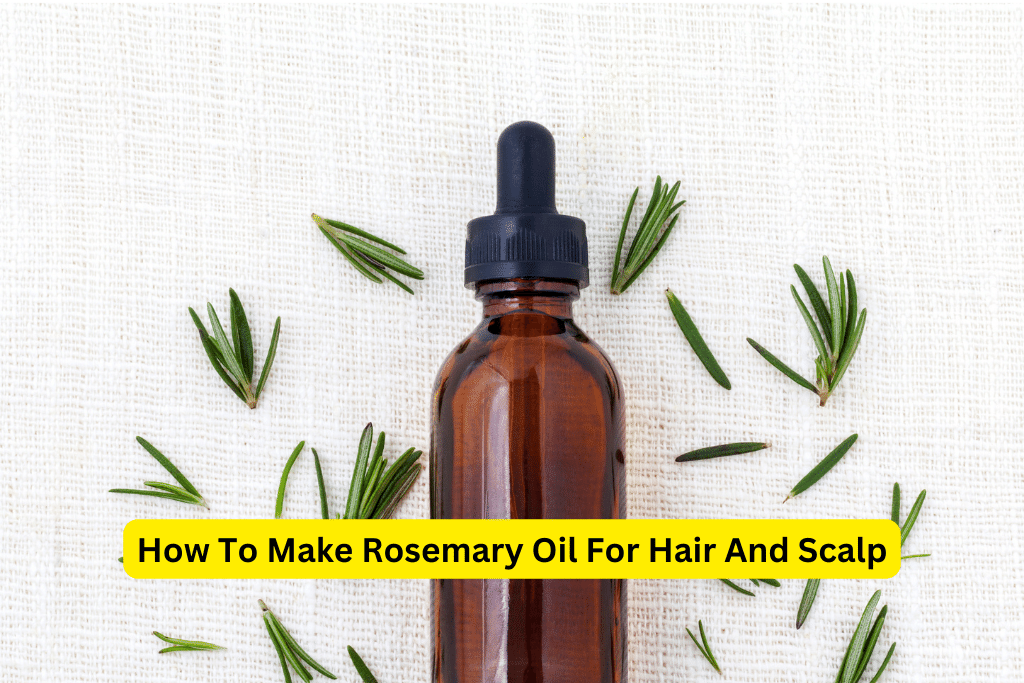Learn to Make Gorgeous Hair with Rosemary Oil – DIY Rosemary Oil for Growth: Hello Gorgeous Hair
How To Make Rosemary Oil For Hair And Scalp
Hair and scalp health are vital for overall well-being and confidence. One natural remedy that has been praised for its effectiveness in promoting healthy hair and scalp is rosemary oil. Derived from the rosemary herb, this oil is rich in antioxidants and has anti-inflammatory properties that can help nourish the hair follicles and scalp. In this comprehensive guide, we will walk you through the step-by-step process of making rosemary oil at home to harness its amazing benefits for your hair and scalp.
I. Understanding the Benefits of Rosemary for Hair and Scalp
A. Antioxidant and Anti-inflammatory Properties
Rosemary is packed with antioxidants that play a crucial role in maintaining healthy hair and scalp. These antioxidants help protect the hair follicles from damage caused by free radicals, promoting hair growth and reducing hair loss. Additionally, rosemary oil has anti-inflammatory properties that can soothe any irritation or inflammation on the scalp, relieving any discomfort.
B. Stimulates Hair Growth
For centuries, rosemary oil has been used to combat hair loss and promote hair growth. Recent studies have found that rosemary oil can indeed stimulate hair growth. This essential oil increases blood circulation to the scalp, which in turn nourishes the hair follicles, leading to improved hair growth and thickness.
C. Improves Scalp Health
Rosemary oil possesses antifungal and antibacterial properties that can effectively tackle scalp issues such as dandruff. It helps to eliminate any fungal growth on the scalp and maintain a healthy pH balance, reducing the recurrence of scalp conditions and promoting a healthy scalp environment for hair growth.
II. Gathering the Ingredients and Equipment
A. List of Ingredients
To make rosemary oil at home, you will need:
- Rosemary leaves or essential oil
- Carrier oil (such as coconut oil, jojoba oil, or olive oil)
B. Equipment Needed
Gather the following equipment before starting the process:
- Glass jar or bottle
- Airtight container for storage
- Strainer or cheesecloth
III. Methods of Extracting Rosemary Oil
A. Infusion Method
If you have fresh rosemary leaves, you can infuse them into a carrier oil to create rosemary oil. Here’s how:
- Crush the rosemary leaves slightly to release their oils.
- Place the crushed leaves in a glass jar and cover them with the carrier oil.
- Seal the jar tightly and place it in a cool, dark place for about two weeks.
- Strain the oil using a strainer or cheesecloth and transfer it to an airtight container for storage.
To enhance the potency of the infusion, you can gently heat the carrier oil and rosemary leaves in a double boiler before the infusion process.
B. Essential Oil Method
If you prefer a quicker method or do not have access to fresh rosemary leaves, you can use rosemary essential oil instead. Here’s how:
- Add a few drops of rosemary essential oil to the chosen carrier oil.
- Use a dilution ratio appropriate for your hair type and condition.
- Mix the oils thoroughly.
- Transfer the mixture to a glass jar or bottle for storage.
IV. Storing and Preserving Rosemary Oil
Best Practices for Storing Homemade Rosemary Oil
To maintain the potency and freshness of your homemade rosemary oil, follow these tips:
- Store the oil in a cool, dark place away from direct sunlight.
- Ensure the container is airtight to prevent oxidation.
- Avoid using plastic containers as they may interact with the oil.
Tips for Extending the Shelf Life of Rosemary Oil
These tips can help extend the shelf life of your rosemary oil:
- Avoid touching the oil with your fingers to prevent contamination.
- Use a clean dropper or cotton ball to extract the oil as needed.
- Inspect the oil regularly for any signs of spoilage, such as a rancid smell or change in color.
V. Using Rosemary Oil for Hair and Scalp Care
A. Preparing the Hair and Scalp
Prior to applying rosemary oil, it is essential to prepare your hair and scalp for maximum absorption. Follow these tips:
- Wash and condition your hair to remove any buildup and create a clean base.
- Gently towel-dry your hair, leaving it slightly damp for better oil absorption.
- Exfoliate your scalp using a gentle scrub or a soft brush to remove any dead skin cells and improve blood circulation.
B. Application Techniques
1. Massage Technique
Massaging rosemary oil into your scalp can provide multiple benefits:
- Take a small amount of rosemary oil and warm it between your palms.
- Using your fingertips, gently massage the oil into your scalp using circular motions.
- Continue massaging for 5-10 minutes to stimulate blood circulation and promote absorption.
- Leave the oil on your scalp for at least 30 minutes or overnight for deeper nourishment.
2. Hair Oil Treatment
Applying rosemary oil to your hair strands can help strengthen and condition your hair:
- Section your hair to ensure even application.
- Apply a small amount of rosemary oil to your palms and rub your hands together.
- Gently run your fingers through your hair, evenly distributing the oil from roots to ends.
- Leave the oil on your hair for at least 30 minutes or overnight for intensive treatment.
C. Frequency and Duration
To obtain optimal results, it is recommended to use rosemary oil for hair and scalp care consistently. Follow these guidelines:
- Massage your scalp with rosemary oil 2-3 times a week.
- Leave the oil on your scalp and hair for at least 30 minutes for regular maintenance.
- For deep conditioning and treatment, leave the oil overnight and wash your hair in the morning.
VI. Complementing Hair Care Regimen with Rosemary Oil
A. Shampoo and Conditioner Mixtures
Add rosemary oil to your favorite commercial shampoo or conditioner to enhance their effectiveness:
- Add a few drops of rosemary oil to your shampoo bottle and shake it well before each use.
- Mix a few drops of rosemary oil with your conditioner in your palm before applying it to your hair.
B. DIY Hair Masks and Treatments
Elevate your hair care routine with homemade hair masks and treatments using rosemary oil:
- Choose a suitable hair mask recipe that addresses your specific hair concerns.
- Add a few drops of rosemary oil to the hair mask mixture and blend it thoroughly.
- Apply the hair mask to your hair and leave it on for the recommended duration before rinsing.
VII. Conclusion
Rosemary oil is a natural and effective remedy for promoting healthy hair and scalp. With its numerous benefits, it can transform your hair care routine and help you achieve your hair goals. By following the steps outlined in this comprehensive guide, you can easily make your own rosemary oil at home and take control of your hair and scalp health. Say goodbye to hair problems and hello to beautiful, vibrant hair with the power of rosemary oil.
"Have You Seen Mike Walden's new holistic acne System yet? It's called "Acne No More" I've read the whole thing (all 223 pages) and there's some great information in there about how to naturally and permanently eliminate your acne without drugs, creams or any kind of gimmicks. I highly recommend it - it's very honest and straightforward without all the hype and b.s. you see all over the net these days. Here's the website where you can get more information:
Click Here -->AcneNoMore









